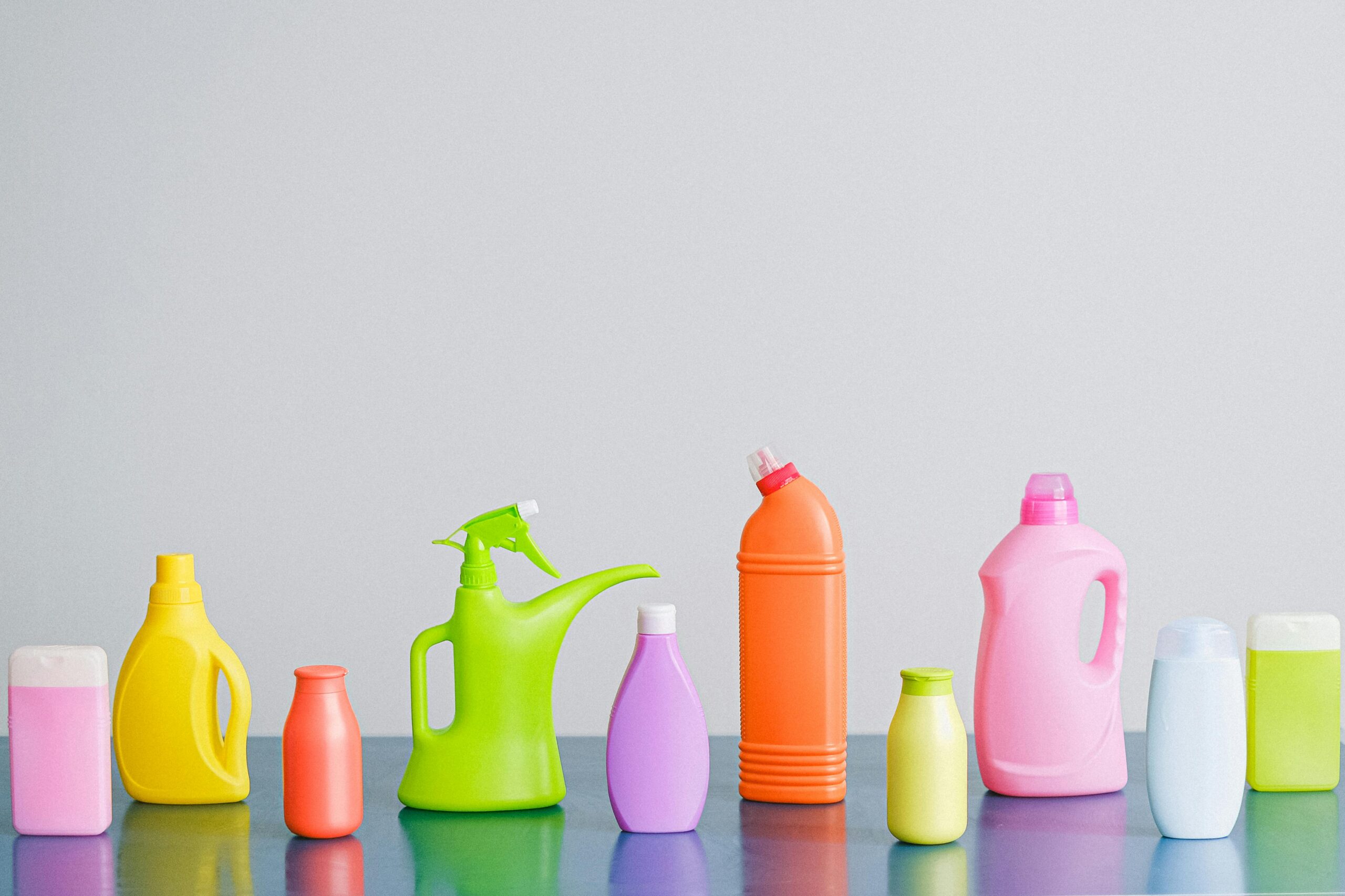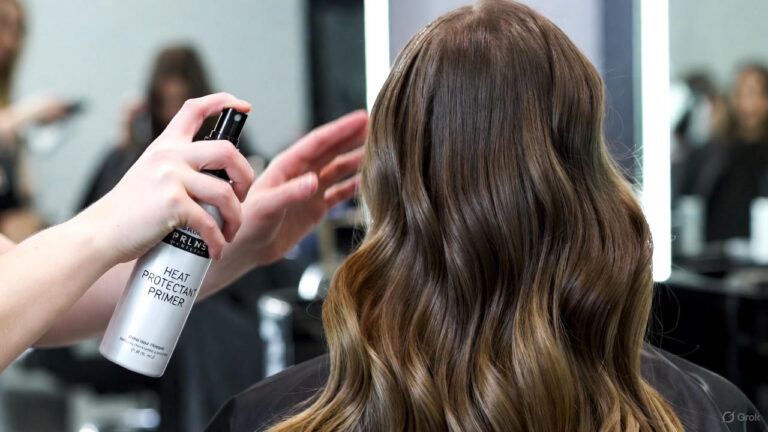Keeping your beauty tools clean is essential for healthy skin and maintaining the longevity of your brushes, sponges, and other tools. However, many commercial cleaners contain harsh chemicals that may not be the best for your skin—or the environment.
Fortunately, you can make your own natural cleaners at home using eco-friendly ingredients that effectively clean, disinfect, and care for your tools without harming the planet.
In this guide, we’ll show you some easy DIY beauty tool cleaners that are safe, natural, and sustainable.
Common Ingredients for DIY Cleaners
Several household ingredients make effective and eco-friendly cleaners for beauty tools. These ingredients are natural, easy to find, and safe for the environment:
- White vinegar: Known for its antibacterial properties, white vinegar is great for cleaning and disinfecting beauty tools.
- Baking soda: This mild abrasive works well for removing makeup residue and grime from brushes.
- Castile soap: A natural, vegetable-based soap, Castile soap gently cleanses without leaving behind harmful chemicals.
- Olive oil: When used in combination with soap, olive oil helps condition and soften brush bristles.
- Tea tree oil: A natural antiseptic, tea tree oil adds a disinfecting boost to any cleaner while leaving behind a fresh scent.
Now, let’s explore specific DIY beauty tool cleaner recipes.
DIY Cleaners for Makeup Brushes
Makeup brushes are one of the most commonly used beauty tools, and they tend to accumulate makeup residue, oil, and bacteria. Keeping them clean is essential for maintaining healthy skin and extending the life of the brushes.
Simple Castile Soap and Olive Oil Cleaner
This gentle cleaner works well for all types of makeup brushes.
Ingredients:
- 1 tablespoon Castile soap
- 1 tablespoon olive oil
- 1/2 cup warm water
Instructions:
- Mix the Castile soap and olive oil in a bowl.
- Add warm water and stir to combine.
- Swirl each makeup brush in the mixture, then rinse thoroughly with clean water.
- Gently squeeze out excess water and lay the brushes flat to dry.
This mixture effectively cleans the bristles without damaging them, and the olive oil helps condition the brush fibers to keep them soft.
Vinegar and Baking Soda Cleaner for Deep Cleaning
For brushes that need a deeper clean, this combination works wonders.
Ingredients:
- 1/2 cup white vinegar
- 2 tablespoons baking soda
- 1 cup warm water
Instructions:
- Mix vinegar and baking soda in a bowl (the mixture will bubble slightly).
- Soak the brushes in the solution for about 10 minutes.
- Rinse the brushes under running water until they are completely clean.
- Lay the brushes flat to dry.
The vinegar disinfects while the baking soda breaks down tough makeup residue.
DIY Cleaners for Beauty Sponges
Beauty sponges, like makeup blenders, absorb product and can be a breeding ground for bacteria. Cleaning them regularly is crucial to avoid skin irritation.
Coconut Oil and Castile Soap Cleaner
This method cleans and softens beauty sponges without the need for harsh chemicals.
Ingredients:
- 1 tablespoon Castile soap
- 1 teaspoon coconut oil
- 1/2 cup warm water
Instructions:
- Mix Castile soap and coconut oil with warm water in a small bowl.
- Submerge the beauty sponge and gently squeeze it to absorb the mixture.
- Continue squeezing the sponge under the water until no product remains.
- Rinse thoroughly and let the sponge air dry.
Coconut oil breaks down makeup, while Castile soap cleanses the sponge thoroughly.
Lemon Juice and Baking Soda Cleaner for Tough Stains
Lemon juice’s natural acidity works well for removing stubborn stains from beauty sponges.
Ingredients:
- 1 tablespoon lemon juice
- 1 tablespoon baking soda
- 1/2 cup warm water
Instructions:
- Mix lemon juice and baking soda in a bowl.
- Soak the sponge in the solution for about 5-10 minutes.
- Squeeze and rinse the sponge under warm water until it’s clean.
- Let the sponge air dry.
This combination helps deodorize and disinfect while removing even the toughest makeup stains.
DIY Cleaners for Hair Brushes and Combs
Hairbrushes and combs can collect dust, oil, and product buildup over time. Keeping them clean is essential for maintaining healthy hair and scalp.
Baking Soda and Vinegar Cleaner for Hairbrushes
This powerful cleaner removes dirt and product residue from hairbrushes effectively.
Ingredients:
- 2 tablespoons baking soda
- 1/2 cup white vinegar
- 1 cup warm water
Instructions:
- Remove any loose hair from the brush.
- Mix baking soda and vinegar in a bowl.
- Dip the brush in the mixture and use a toothbrush to scrub the bristles.
- Rinse under warm water and let it air dry.
The baking soda breaks down oils, while vinegar disinfects the brush thoroughly.
Tea Tree Oil and Water Cleaner for Combs
Tea tree oil is great for disinfecting combs and keeping them fresh.
Ingredients:
- 5 drops tea tree oil
- 1 cup warm water
Instructions:
- Mix tea tree oil and warm water in a bowl.
- Soak the comb in the mixture for 10 minutes.
- Rinse with water and let it air dry.
This simple cleaner disinfects the comb while leaving it smelling fresh.
Conclusion
Using DIY natural beauty tool cleaners is an easy and effective way to maintain your tools while being kind to the environment. By choosing eco-friendly ingredients, you not only protect your skin but also reduce your environmental footprint. Try out these simple, sustainable solutions to keep your beauty tools in top condition, and enjoy the benefits of natural care.
FAQs
1. How often should I clean my beauty tools?
It’s recommended to clean makeup brushes and sponges at least once a week to prevent bacteria buildup. Hairbrushes and combs should be cleaned every 1-2 weeks.
2. Can I use essential oils in my DIY beauty tool cleaner?
Yes, essential oils like tea tree, lavender, and eucalyptus can be added for their antibacterial properties and pleasant scent. Just ensure they are properly diluted.
3. Is it safe to use vinegar on my makeup brushes?
Yes, vinegar is safe for makeup brushes as long as it is diluted properly. It works well as a natural disinfectant and removes residue effectively.
4. How do I clean beauty tools made from natural materials?
For natural bristle brushes or wooden tools, avoid soaking them in water. Instead, use a damp cloth with a small amount of natural soap and wipe them down.
5. Can I use these DIY cleaners on all beauty tools?
Most of these cleaners are safe for all beauty tools, but always test on a small area first. Avoid using abrasive ingredients like baking soda on delicate or porous materials.



